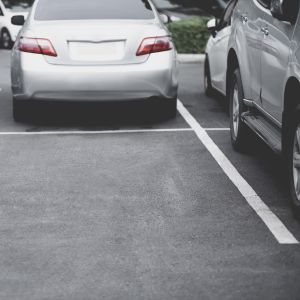Park Your Car can often be a stressful and frustrating experience for many drivers, especially when faced with the possibility of their car being towed. Not only can it result in expensive fees, but it can also be a major inconvenience and disrupt daily routines. However, with proper knowledge and techniques, it is possible to avoid the dreaded towing altogether. In this article, we will discuss effective strategies for parking your car in a way that minimizes the risk of being towed.
From understanding parking signs and regulations to utilizing alternative parking options, we will provide you with practical advice on how to keep your car safe and avoid the headache of towing. Whether you live in a busy city or a suburban neighborhood, these tips will come in handy for any situation. So, buckle up and get ready to learn how to park your car like a pro and say goodbye to the fear of being towed.
Know your parking restrictions beforehand

Being aware of parking restrictions is crucial when it comes to avoiding the inconvenience and expense of having your car towed. Before parking your vehicle, take the time to research and familiarize yourself with the specific regulations and restrictions in the area. This can include checking for signs indicating time limits, permit requirements, or designated parking zones.
Additionally, it is important to understand any seasonal or temporary restrictions such as street cleaning schedules or special event restrictions. By proactively knowing and abiding by these parking restrictions, you can ensure a hassle-free parking experience and avoid the potential headache of having your car towed.
Use designated parking areas only

When it comes to parking your car to avoid towing, one of the golden rules is to use designated parking areas only. These areas are specifically designated for parking and often come with clear signage or markings indicating their purpose. By utilizing these designated parking spots, you not only comply with the parking regulations but also minimize the risk of getting your vehicle towed.
Designated parking areas are typically organized to provide efficient parking options and ensure smooth traffic flow. Whether it’s a parking lot, garage, or street with designated parking spaces, choosing these authorized areas demonstrates responsible parking behavior and helps maintain order in the vicinity. Always remember to park in designated areas to prevent any unnecessary complications and ensure a trouble-free parking experience.
Avoid parking in front of driveways
When it comes to parking your car to avoid towing, it is crucial to be mindful and respectful of driveways. Parking in front of driveways not only poses an inconvenience to the residents or property owners but can also result in your vehicle being towed. Driveways are private access points to homes and businesses, and blocking them with your parked vehicle can disrupt the flow of traffic and impede others’ ability to enter or exit their properties.
It is important to prioritize the accessibility and convenience of others by refraining from parking in front of driveways. By doing so, you not only avoid potential repercussions such as towing but also demonstrate considerate and responsible parking habits. Remember, always be aware of your surroundings and ensure that you park in areas that do not obstruct any driveways to maintain a smooth and hassle-free parking experience.
Pay attention to signs and meters

To effectively park your car and avoid towing, it is essential to pay close attention to signs and meters. These indicators provide valuable information about parking regulations, restrictions, and time limits in a particular area. Ignoring or disregarding these signs can lead to fines, penalties, or even having your vehicle towed. Take the time to carefully read and understand the information displayed on signs, including any parking restrictions during certain hours or specific days.
Additionally, meters are designed to control parking duration and ensure fair allocation of parking spaces. Make sure to comply with the meter requirements, such as paying the required fees or adhering to the designated time limits. By attentively observing and following the instructions provided by signs and meters, you can park your car in a manner that complies with regulations and avoids the inconvenience and expense of towing.
Utilize parking apps and maps
In today’s digital age, utilizing parking apps and maps can be a valuable tool in your quest to park your car without the risk of towing. These apps provide real-time information on available parking spaces, pricing, and even allow you to reserve a spot in advance. By using these apps, you can save time and frustration by easily locating parking areas that meet your needs and are within compliance with parking regulations.
Furthermore, parking maps can provide visual guidance, highlighting areas where parking is permitted and areas to avoid. By incorporating these technological resources into your parking routine, you can enhance your chances of finding convenient parking options and ultimately avoid the inconvenience and expense of towing.
FAQs about Park Your Car to Avoid Towing
What are some common parking violations that can lead to your car being towed?
Some common parking violations that can lead to your car being towed include parking in a designated fire lane or blocking a fire hydrant, parking in a handicap spot without the proper permit, parking in a no-parking zone, parking in front of a driveway or blocking someone’s access, and parking in a tow-away zone or in a private property without permission.
How can you determine if a parking spot is legal and safe to park in?
To determine if a parking spot is legal and safe to park in, you should first check if there are any signs or markings indicating parking regulations. Look for signs that indicate parking restrictions, such as no parking zones, time-limited parking, or reserved parking spaces. Additionally, check for any parking meters or pay stations that may be required for parking. It is also important to consider the visibility and accessibility of the parking spot. Ensure that it is not obstructing traffic or pedestrian pathways. Lastly, consider the surroundings, such as the presence of lighting, security cameras, and the general level of safety in the area.
What are some alternative parking options to consider if you are unable to find a legal spot?
Some alternative parking options to consider if you are unable to find a legal spot include parking in private lots or garages, using parking apps or websites to find available spaces, parking in designated parking zones for motorcycles or bicycles, utilizing park-and-ride facilities, or seeking permission from nearby businesses or residences to park temporarily. However, it is important to always prioritize legality and respect parking regulations to avoid fines or towing.
Conclusion
While it may seem daunting or overwhelming at first, following these simple steps can help you avoid the hassle and expense of having your car towed. Remember to always check for parking signs and restrictions, utilize designated parking areas, and be mindful of the time limits in place. With a little extra attention and care, you can ensure that your car stays where you parked it, saving you time, money, and stress in the long run. Happy parking!

